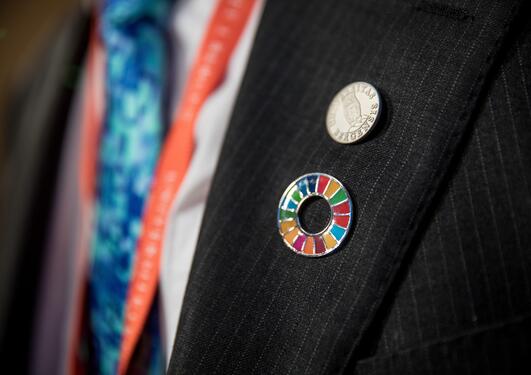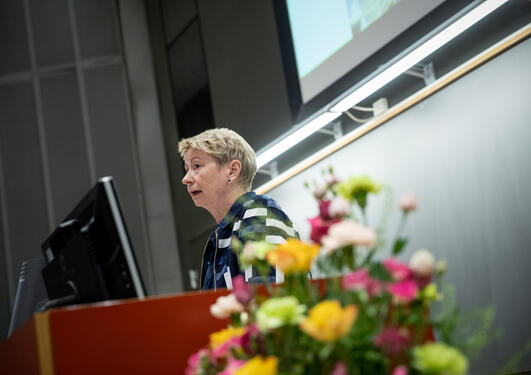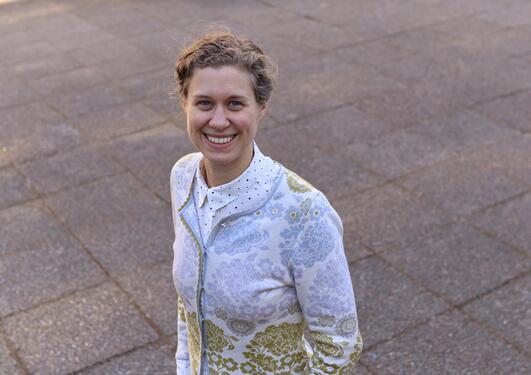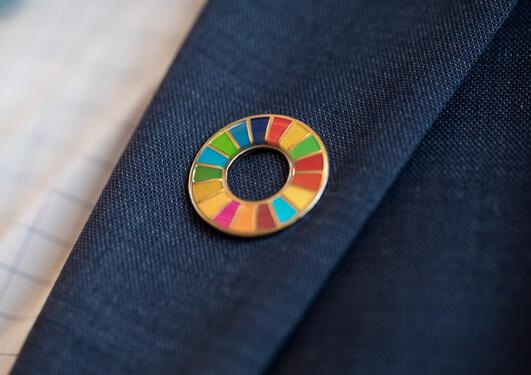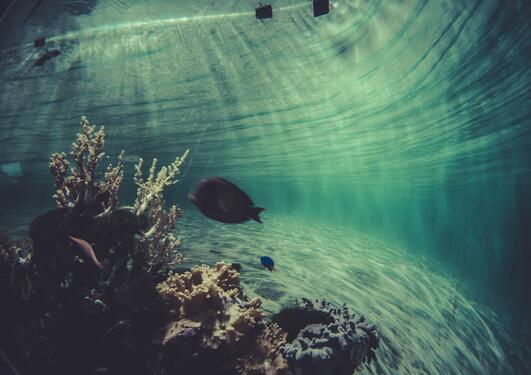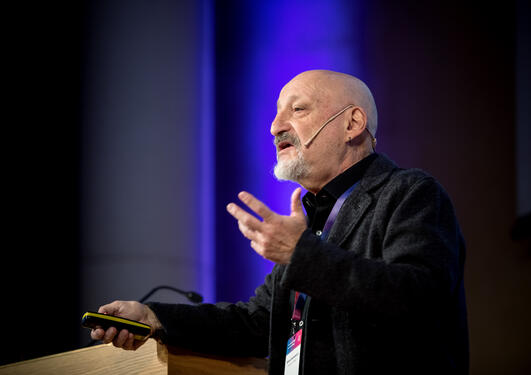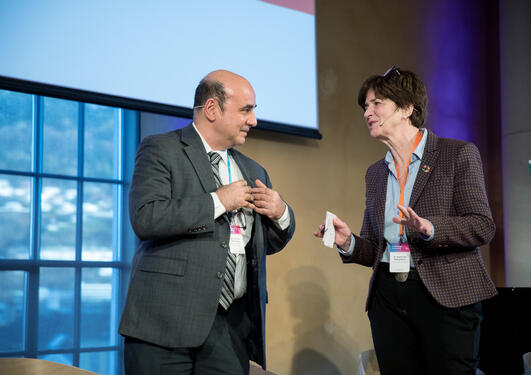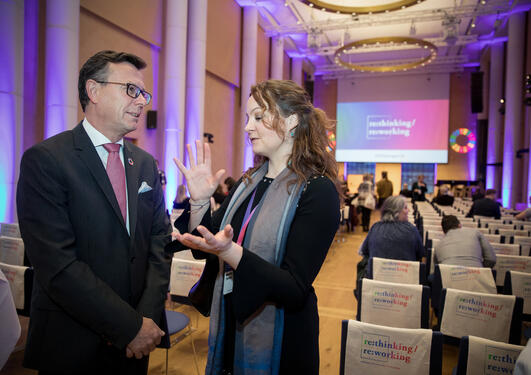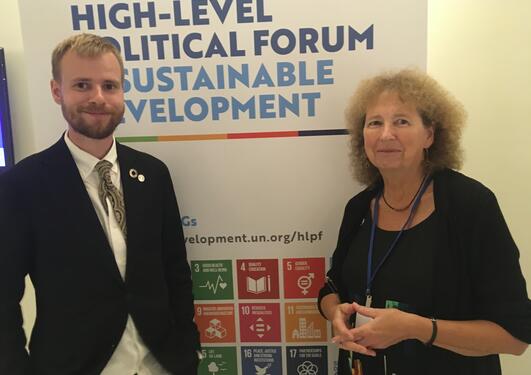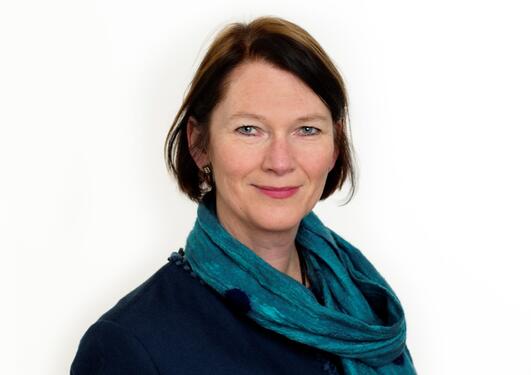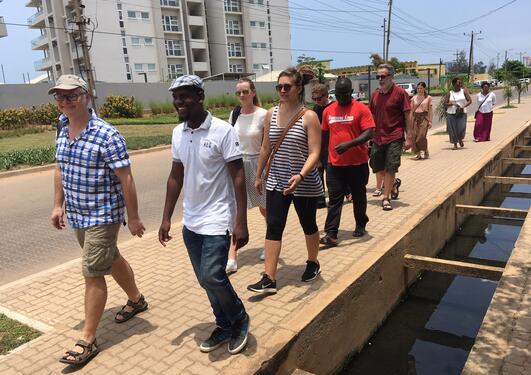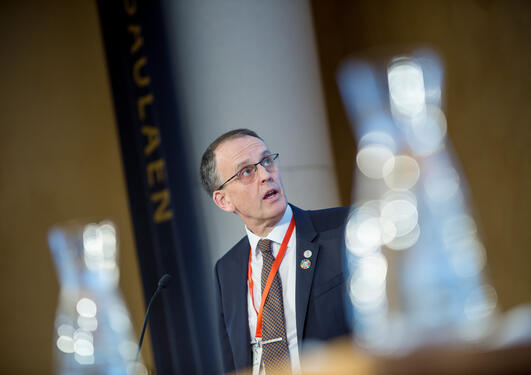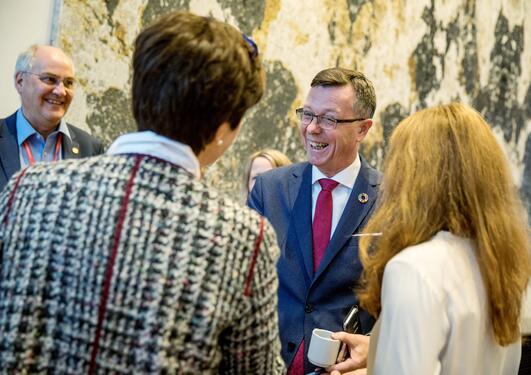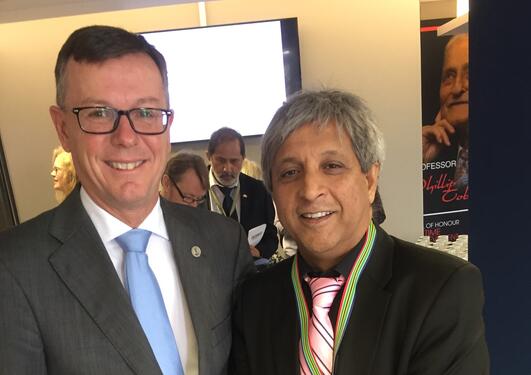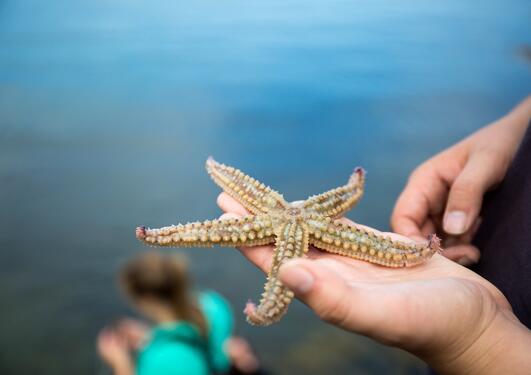News archive for Research
The SDG Bergen initiative is presented in a special 10-page section in the UiB Magazine.
Norwegian diplomat Marianne Loe was in the UN when the deal on the Sustainable Development Goals (SDGs) was made. In her opening keynote at the 2019 Bergen Summer Research School, she told of her insider's experience in the making of this ground-breaking agreement.
Biologist Dorothy Dankel believes that credible and salient management of cultural and ecological heritage sites is crucial to supporting a sustainable ocean economy. Her new research project, LoVeSe-SDG, is funded by the Research Council of Norway.
How do enclaves that arise as cities within a city, impact on urban planning and the creation of liveable and sustainable cities for all citizens? This is one of the central themes in the research project Urban Enclaving Futures.
The University of Bergen has been ranked number 53 across the world in the first THE University Impact Rankings, based on the Sustainable Development Goals, and is the only Norwegian university to be ranked.
A seminar in Bergen explores how the Ocean can be better regulated to ensure the balance between the harvesting of natural resources and the need for conservation.
When discussing sustainable development, terms such as science advice and the science-policy interface have become all the rage. What is this all about? We asked veteran researcher Silvio Funtowicz to provide some clarity on the subject.
The second day of the 2019 SDG Conference Bergen focussed on how the academic community can bring its knowledge to decision-makers locally and globally.
From building a global student movement to the crucial role of universities, the first day of the 2019 SDG Conference Bergen was diverse in its engagement with global sustainability.
In February 2018, Victoria W. Thoresen and Jakob Grandin were key participants in the inaugural SDG Conference Bergen. The first national conference in the world bringing the university sector together in critical debate to engage with the UN's 2030 Agenda.
Professor Lise Øvreås takes over from Peter M. Haugan as Academic Director of Ocean Sustainability Bergen, UiB's centre for sustainable ocean research, with scientific advice being one of the main tasks in her portfolio.
The cutting-edge Urban Enclaving Futures project used its first workshop to define how research can bring in social, cultural, spatial and further dimensions moving beyond classic economic understandings of urban development.
Researcher Hakan G. Sicakkan considers the UN's new Migration Compact to be an exciting addition to the global migration discourse and he looks forward to studying its implementation.
Earlier this autumn Peter M. Haugan was appointed member of the expert group for the High Level Panel for a Sustainable Ocean Economy. He is now preparing to attend the first meeting - in his hometown Bergen.
The University of Bergen has been announced as part of the International Association of Universities SDG Cluster, with special responsibility and leadership for SDG14, Life Below Water.
South African university leader Adam Habib believes that research and innovation must be linked to equality if the goal of a sustainable world is to be reached. In February 2019 he is the opening keynote at Norway's National SDG Conference Bergen.
The University of Bergen has taken on a leadership role on SDG 14, Life below water, for United Nations Academic Impact, and will act to inspire and motivate partners worldwide to create greater knowledge towards a sustainable ocean.
Norway's national Long-term plan for research and higher education has been revised to create a stronger connection between knowledge for sustainable development and scientific advice. SDG Bergen and UiB's leading role is highlighted in the plan.
Pages
- February 2026 (2)
- January 2026 (1)
- December 2025 (4)
- November 2025 (1)
- October 2025 (3)
- September 2025 (2)
- August 2025 (1)
- July 2025 (3)
- June 2025 (4)
- April 2025 (5)
- March 2025 (3)
- February 2025 (7)
- January 2025 (2)
- December 2024 (1)
- November 2024 (3)
- October 2024 (3)
- September 2024 (3)
- August 2024 (1)
- July 2024 (2)
- June 2024 (5)
- May 2024 (1)
- April 2024 (3)
- March 2024 (4)
- February 2024 (2)
- January 2024 (3)
- December 2023 (6)
- November 2023 (6)
- October 2023 (6)
- September 2023 (5)
- August 2023 (3)
- June 2023 (4)
- May 2023 (4)
- April 2023 (5)
- March 2023 (6)
- February 2023 (2)
- January 2023 (3)
- November 2022 (5)
- October 2022 (4)
- September 2022 (4)
- August 2022 (1)
- June 2022 (2)
- May 2022 (1)
- April 2022 (3)
- March 2022 (3)
- February 2022 (2)
- October 2021 (1)
- September 2021 (1)
- August 2021 (1)
- March 2021 (5)
- February 2021 (4)
- December 2020 (4)
- November 2020 (4)
- October 2020 (2)
- September 2020 (1)
- July 2020 (2)
- June 2020 (6)
- May 2020 (2)
- April 2020 (2)
- March 2020 (1)
- February 2020 (2)
- January 2020 (2)
- November 2019 (1)
- October 2019 (4)
- September 2019 (2)
- August 2019 (2)
- July 2019 (5)
- June 2019 (2)
- May 2019 (1)
- April 2019 (2)
- March 2019 (2)
- February 2019 (3)
- January 2019 (2)
- December 2018 (1)
- November 2018 (3)
- October 2018 (2)
- August 2018 (1)
- July 2018 (3)
- June 2018 (3)
- May 2018 (2)
- April 2018 (3)
- March 2018 (1)
- February 2018 (3)
- August 2017 (2)
- June 2017 (2)
- May 2017 (1)
- April 2017 (5)
- March 2017 (4)
- January 2017 (1)
- December 2016 (1)
- November 2016 (1)
- October 2016 (2)
- August 2016 (1)
- May 2016 (1)
- March 2016 (1)
- February 2016 (2)
- January 2016 (2)
- December 2015 (2)
- November 2015 (1)
- August 2015 (1)
- June 2015 (1)
- December 2013 (1)
